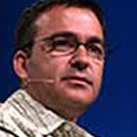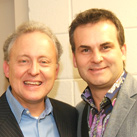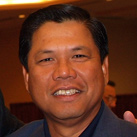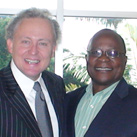Turning The Great Omission Into The Great Commission

I remember, in 2006, sitting in the actual place where Christopher Columbus set sail for the New World, and praying, “Lord, please double the size of the Church in my generation and make it harder for anyone to live on this earth and not hear the glorious Gospel.”
 In 2021, the number of believers among the Hassaniya Moors of Mali doubled. It is hard to describe the joy the team working among them felt, as well as friends, supporters, prayer partners, and mission leaders living far away. With the angels in heaven (Luke 15:10), we should rejoice. What is now the total number of believers among the Hassaniya? Two.
In 2021, the number of believers among the Hassaniya Moors of Mali doubled. It is hard to describe the joy the team working among them felt, as well as friends, supporters, prayer partners, and mission leaders living far away. With the angels in heaven (Luke 15:10), we should rejoice. What is now the total number of believers among the Hassaniya? Two.
I cannot understand why any Christian organization would not set an actual goal to complete the Great Commission. We usually set goals to “move the vision along,” but not set a goal to actually complete it. It is unthinkable for people to live and die without hearing God’s good news since the gospel is for the whole world.
In Mark 16:15 Jesus commands: ‘Go into all the world and preach the gospel to all creation.’ Acts 1:8 emphasizes a witness to the remotest part of the earth. We are called for the whole church to take the whole gospel to the whole world. We are usually so wrapped up in “our brand” that we miss the opportunity to synergize, mobilize, and finalize the Great Commission.
Do we truly believe that the Gospel is meant for the whole world? If so, then why were so many like the Hassaniya Moors still without real access to the Gospel? As much as 77.3 percent of missionaries are serving among people to whom the gospel has already reached. About 19.4 percent are among the unevangelized. Only the remaining 3.3 percent are living among the 3.28 billion who have never heard the name of Jesus. Why are so many going in the opposite direction from the most concentrated areas of those with no access to the gospel?
Here are some statistics at a glance:
- Three percent of missionaries go to unreached places; 97 percent go to reached or unevangelized places.
- Globally, 87 percent of all Muslims, Hindus, and Buddhists do not personally know a Christian.
- The world’s 1.9 billion Muslims have only 5,000 missionaries: one missionary for every 400,000 Muslims. Yet nations like Brazil have thousands of missionaries.
- Ninety-five percent of the 5.5 million full-time Christian workers in the world are working within the Christian world.
- Eighty-two percent of all Christian giving goes to the ministry of the local church and is spent on the local congregation. Only 1.7 percent goes towards reaching the unreached.
You may have discovered that your church or organization is not pulling its weight in global missions, or that its giving and going does not prioritize the Gospel to the whole world. Your church or ministry may be like a small boat or a huge ocean liner; it may need slight compass calibrations or a complete resetting of its course.
Recently, I was fortunate to minister in Bangkok, Thailand. While I was there, I took my 17-year-old daughter, to The Temple and Palace Grounds. I wanted her to see the lostness of people and to see firsthand the false religion of Buddhism. While I was on the Temple grounds, I have prepared this video:
Asking The Right Questions
There are some practical steps we can take. The best starting point is to ask the right questions.
- How much of your resources are actually going towards making the Gospel accessible to those who have no access?
- How often is your church challenging its members to give their lives and resources to make the Gospel accessible to those who live and die without it?
The answers will not only reveal priorities and awareness levels, but also inform future steps, introducing a vision for the future. Is it right to continue sending more workers to contexts where the Gospel is present and even strong, and to ignore others where the Gospel is not heard at all? You may need fresh vision and direction.
Next Steps Towards Success
 First, the church’s or organization’s purpose, and vision must prayerfully refocus on those who live where there is no access to the Gospel. Without this, it is easy to drift towards the lower-hanging fruit of existing and ‘easy’ places. Years ago on the 500th Anniversary of Martin Luther nailing his 95 Thesis in Castle Church, Wittenberg, Germany, the Global Church Network focused on the hardest 3,000 unreached people groups. We figure, if we can synergize our efforts in the actual hardest places, eventually, we can help to complete the Great Commission.
First, the church’s or organization’s purpose, and vision must prayerfully refocus on those who live where there is no access to the Gospel. Without this, it is easy to drift towards the lower-hanging fruit of existing and ‘easy’ places. Years ago on the 500th Anniversary of Martin Luther nailing his 95 Thesis in Castle Church, Wittenberg, Germany, the Global Church Network focused on the hardest 3,000 unreached people groups. We figure, if we can synergize our efforts in the actual hardest places, eventually, we can help to complete the Great Commission.
Remember, there is no one among the unreached who will advocate for themselves to be a priority, so a church or ministry must purposefully choose them. Only this level of intentionality will create the conditions in which a seed of the Gospel is effectively sent out and planted in a place where none now exists.
Second, it is critical that everyone in the church or organization embraces the priority. They must be like a fleet of ships facing the same guiding star and navigating from the same celestial map. In 2012, we launched Global Hubs of Christianity in order to pull different streams of Christianity together to help keep the priority of making the Gospel accessible to all peoples.
Third, a key to effectiveness in a globalized world is multi-ethnic and multi-skilled teams. A whole team with multiple skillsets goes to a whole community with multiple opportunities. Where applicable, new workers should have the intention of being on teams with local people who are already serving and know what works in their context, rather than thinking that they themselves will bring solutions.
We do not have a harvest problem; but we have a labor problem. Jesus said, “the harvest is plentiful but the laborers are few.” There are plenty of fish to fill every boat; enough lost people to fill every church on the planet. We must pick up the pace of training laborers for the harvest field. The Global Church Divinity School (GCDS.tv) is on the cutting-edge of equipping laborers for evangelism, church planting and discipleship.
Overcoming The Obstacles
 Lack of awareness and inaccurate knowledge are the first obstacles to anticipate. Many capable and even missions-minded churches and ministries are not aware that so many people in the world still cannot access the Gospel in a language and form they can understand. Most Christians do not understand the difference between unreached and unengaged unreached.
Lack of awareness and inaccurate knowledge are the first obstacles to anticipate. Many capable and even missions-minded churches and ministries are not aware that so many people in the world still cannot access the Gospel in a language and form they can understand. Most Christians do not understand the difference between unreached and unengaged unreached.
Financial obstacles may also be significant, especially for workers from the Global South. And there will certainly be opposition from the powers of darkness. This must be faced through consistent, persistent prayer. There is no barrier too high for our God to overcome. The locations that make up the rest of the ‘whole world’ are places that cannot be entered without the guidance of the Holy Spirit and the protection that comes from fervent, dedicated prayers, individual and corporate. The Lord of the Harvest longs to meet us—his harvest workers—to speak, instruct, and align us with his heart and plans.
Let us be committed to the urgent and unfinished task of making disciples of Jesus Christ in the whole world. “Let his ways be known on the [whole] earth, his salvation among [all] nations. May all the peoples praise you. May [all] the nations be glad and sing for joy” (Ps 67:1-4).
Back To Blog





